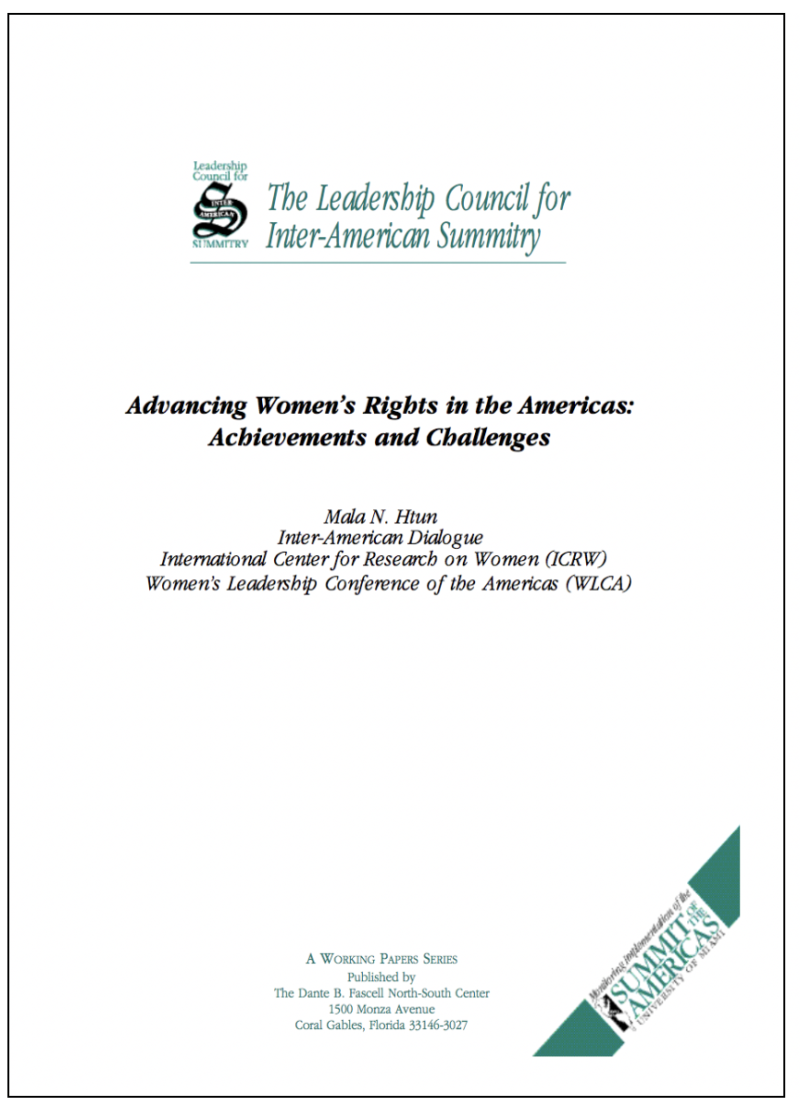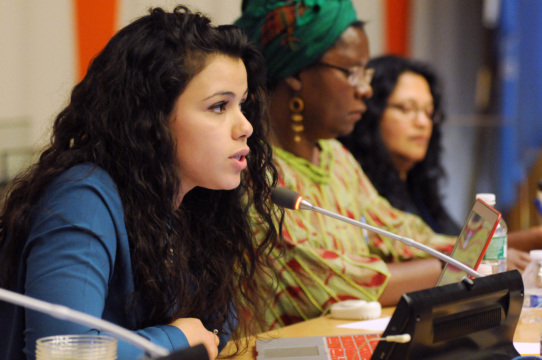What Roles are Women Playing in Mexico’s Drug War?
What roles are women playing in Mexico’s brutal drug trafficking war?
This paper highlights the achievements and the failures of American governments in implementing Summit provisions related to women’s rights in the areas of violence, health, political participation, legal rights, and the maintenance of women’s agencies in the state. Most countries have made major advances in eliminating sex discrimination in the law, opening the doors of decision-making to unprecedented numbers of women and adopting laws and policies designed to reduce domestic and sexual violence. Women have gained a significant number of “new rights.” Yet, in few cases have state institutions changed and sufficient funds been committed to make these “new rights” concrete. Implementing the advanced normative frameworks endorsed by the region’s legislatures and by heads of states in international agreements requires executive action. Yet, women are poorly represented in the executive branch, and executive agencies designed to coordinate public policies directed at women lack, for the most part, sufficient institutional power and status to carry out their mandates.
Regional non-governmental organizations (NGOs) have been working to hold governments accountable to their commitments and to increase public awareness of progress on Summit initiatives. The Women’s Leadership Conference of the Americas (WLCA) has conducted periodic surveys of the situation of women and gender-related policy initiatives in the Americas and has published several policy briefs on women’s rights and opportunities, political participation and leadership, and violence against women. The Santiago-based PARTICIPA has twice convened — most recently in cooperation with the Esquell Group Foundation of the United States and FOCAL of Canada — representatives from NGOs around the hemisphere, including women’s rights groups, to formulate proposals for governments to include in the Quebec Summit’s Plan of Action and to coordinate efforts to follow up on summit mandates. The sustained vigilance of these organizations will help compel governments to make greater investments in improving women’s rights.
What roles are women playing in Mexico’s brutal drug trafficking war?
How are women faring in Latin America? Where has progress been made and how has that been achieved?
Would this be a more compassionate, more peaceful planet if more of it were ruled by women?


